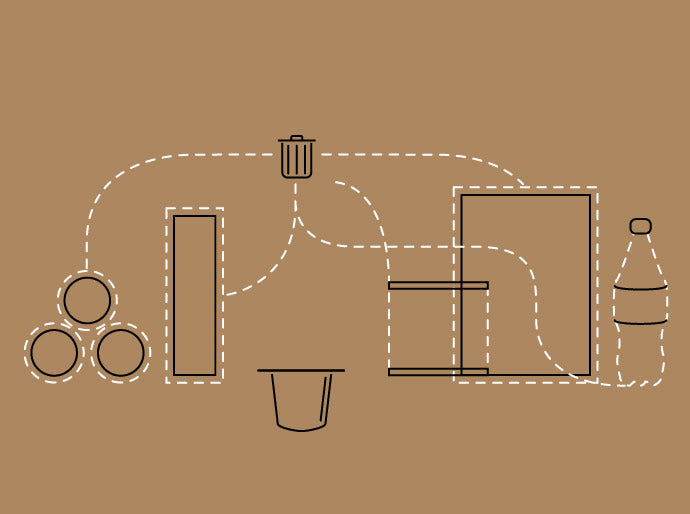ENJOY 15% OFF A NEW SUBSCRIPTION

How sustainable are the current practices in the food and drink industry?
Way back in 2015, a survey of food companies showed that those who engaged in product sustainability were more likely to keep their best staff, report efficiency gains, have a stronger supply chain, and better meet retailer requirements. Meeting growing demand from the market for more sustainable products and increasing general awareness of sustainability issues may have also played key roles.
So, if we knew back in 2015 that sustainability is good for business, why didn’t the food and drinks industry undergo a total rethink and redesign?
Perhaps the answer is because ‘it’s complicated’. Sustainability practices in the food and drinks industry entail far more than making customer-facing recycled packaging. It goes much deeper. Sustainability is about how ingredients are grown, fertilised, watered, harvested, transported, processed, packaged, displayed, and disposed of after use. The issue with all of these things is the transparency of information. Businesses don’t want people knowing everything about their ‘behind-the-scenes’ processes and systems. It might be bad for business.
In this article, we want to highlight some of the current practices (or malpractices) of the food and drinks industry. You can see for yourselves whether or not they will stand the sustainability-test of time.
Problem: Overpackaging of food
Examples: Food delivery, takeaway food, Russian doll packages
Think of the last time you ordered takeaway online, like a pizza, Indian, or a kebab. Did you get sent plastic cutlery, napkins, packaging too big for the food, and sachets of sauce? You already have cutlery, napkins, and bottles of sauce in your home. It’s the same problem when you go and collect takeaway food, there are things in the bag that you don’t need. It’s not sustainable.
Have you ever ordered packaged food products from the internet, let’s say, protein bars? You receive a big box, with a smaller box inside, accompanied by some packaging peanuts. Inside the smaller box is X amount of protein bars all individually wrapped. This is the Russian doll packaging effect. There must be a better way. Mustn't there?
Problem: General waste instead of compostable waste
Examples: plastic bags, takeaway containers, pet food pouches, crisp packets
Some retailers have started making biodegradable and compostable plastic bags, which is a good start, but what about other cheap plastic and foil-based packaging that is doomed to go in the general waste. What’s stopping the food and drinks industry from making pet food packaging compostable? Crisp packets don’t get recycled, so why not make them from potato starch (a by-product of their production) so that they can be composted? Whilst the current limitations are known, such as the struggle of hermetically sealing compostable crisp packets, it will take the initiative of consumers and innovators to improve certain products and their packaging.
Problem: Food waste and overproduction
Examples: Bread, Milk, Potatoes, Cheese
In parts of the developed world and the majority of EU states, food waste has climbed to an alarming high rate. At a time when the environment is under threat and appears to be deteriorating, and when the global population is at an all-time high, how can we afford to be reckless with our perishables? It’s because we tend to undervalue perishables that are widely available. The examples above, such as bread, milk, potatoes, and cheese, are products that we have in abundance, and that abundance is the cause of their unsustainability. If the food and drinks industry wants to tackle food waste, it must ask serious questions about why it overproduces so many basic commodities.
Scratching the surface
We’ve only mentioned a few of the many non-sustainable methods in the food and drinks industry. What about the lack of options for refilling things like cereal, sugar, or liquid soap? What about the lack of encouragement or incentive for buying products in larger packaging, such as a 1kg box of cereal instead of 200g? Why do we have versions of products like cheese and sweets where every piece is individually packaged?
The food and drinks industry is trying to shift and change, but it requires the participation of more producers if it is going to truly happen. Consumers must try to heap more pressure on producers to do more. It has already been proven that an active commitment to sustainability will win and keep customers, so businesses who make changes now and try to be more sustainable can benefit before they start to lose market share.
